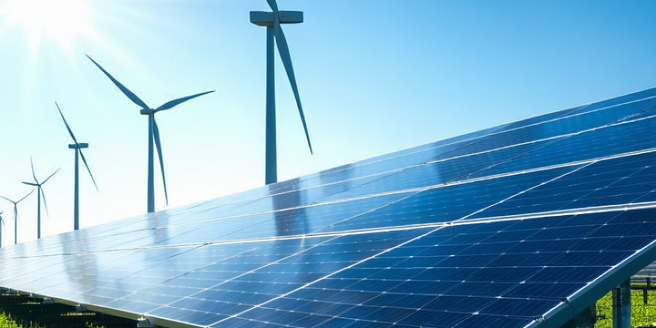
Emerging Trends in Energy Sector Startups
Startups in the energy sector are increasingly focusing on sustainable and clean energy solutions. A significant trend is the adoption of renewable energy sources such as solar, wind, and biomass, aiming to reduce dependency on traditional fossil fuels. Energy storage advancements, such as improved battery technologies, are allowing companies to store energy more efficiently. The need for sustainable practices has never been more urgent as climate change impacts become more pronounced. The integration of digital technologies, including IoT and AI, is helping to optimize energy consumption and distribution. Moreover, microgrid deployment is becoming more prevalent, offering decentralized energy systems that provide resilience and energy security. As startups continue to innovate, collaboration with governments and larger corporations is crucial to ensure wide-scale implementation and success of these emerging trends.
Innovations Driving the Energy Sector
Innovation within the energy sector is being driven by a need for sustainability and efficiency. Cutting-edge technologies such as blockchain are being used for transparent energy trading. Advancements in smart grid technology allow for real-time monitoring and management of energy resources. For example, these grids can quickly adapt to fluctuations in energy supply and demand, ensuring stability. Furthermore, artificial intelligence and machine learning are being applied to optimize energy production and consumption processes. Carbon capture and storage technologies are being developed to mitigate greenhouse gas emissions. Energy startups are also exploring new materials for more efficient solar panels and wind turbines. These innovations are crucial to addressing global energy demands while reducing environmental impact.
Key Challenges for Energy Startups
Energy startups face several challenges, primarily related to funding and scalability. High initial capital requirements often create barriers to entry. Navigating complex regulatory environments can be daunting as controlled policies frequently vary by region. Additionally, achieving customer trust and proving technology reliability are ongoing hurdles. Staying informed about industry trends is crucial for startups to anticipate and address potential roadblocks. Building a strong network within the industry can provide invaluable support and resources. The transition from pilot projects to full-scale deployment requires strategic partnerships and investments. Balancing rapid innovation cycles with long-term sustainability commitments is also a significant challenge. Startups need to be adaptive, resourceful, and persistent to overcome these obstacles while maintaining competitiveness in the rapidly evolving energy market.
Investment Opportunities in the Energy Industry
The energy industry presents a wide array of investment opportunities, particularly in renewable energy sectors. Investors are increasingly drawn to solar and wind power projects due to growing global demand for sustainable energy solutions. Public awareness regarding climate change further drives interest in these renewable resources. The rise of electric vehicles is spurring investments in battery technologies and charging infrastructure. Innovations in energy storage are becoming crucial to support the transition to clean energy sources. Oil and gas sectors also present opportunities, especially in technologies aimed at reducing carbon emissions. Government incentives and subsidies for green energy projects enhance the industry’s attractiveness to investors. Additionally, venture capital is increasingly funneled into startups harnessing AI and IoT to revolutionize energy management and efficiency.
The Future of Energy Sector Startups
The future of energy sector startups looks promising, with technological innovation at its core. Emerging technologies such as blockchain and AI are also expected to revolutionize the way energy is produced, consumed, and traded. Startups will play a pivotal role in transitioning to a low-carbon economy by leveraging advancements in renewable energy, storage solutions, and energy efficiency. Increased emphasis on sustainable practices will drive further investments and innovation in this field. Decentralization through microgrids will become more common, empowering communities and improving energy resilience. As governments worldwide tighten climate policies, the demand for clean and efficient energy solutions will surge, providing abundant opportunities for startups. Collaboration among startups, investors, and regulatory bodies will be essential to harnessing the full potential of the energy sector in achieving a sustainable future.
